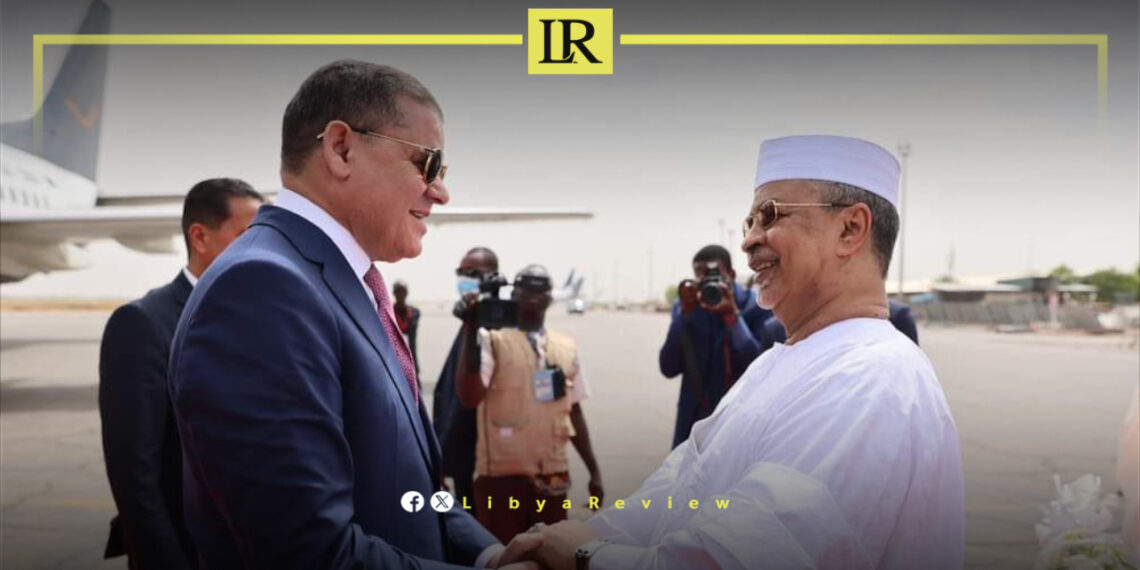Libyan Prime Minister of the Government of National Unity (GNU) arrived in the Chadian capital, N’Djamena, on Thursday. He was welcomed by Chad’s Prime Minister and Foreign Minister.
The visit comes in response to an invitation from Chadian President Mahamat Idriss Déby to attend his presidential inauguration ceremony. The event will see participation from several heads of state and government. Dbaiba is accompanied by the Chief of General Staff and the Minister of State for Cabinet Affairs.
Earlier this month, Chad’s National Election Agency announced Déby’s victory in the presidential elections with 61.3% of the vote, according to preliminary results. Opposition leader Succès Masra came in second with 18.53%, while former Prime Minister Albert Pahimi Padacké secured 16.93% of the votes.
Last week, the Constitutional Council confirmed Déby’s victory after rejecting appeals from two losing candidates who sought to annul the presidential elections either partially or entirely.
Libya has been in chaos since a NATO-backed uprising toppled longtime leader Muammar Gaddafi in 2011. The county has for years been split between rival administrations.
Libya’s economy, heavily reliant on oil, has suffered due to the ongoing conflict. The instability has led to fluctuations in oil production and prices, impacting the global oil market and Libya’s economy.
The conflict has led to a significant humanitarian crisis in Libya, with thousands of people killed, and many more displaced. Migrants and refugees using Libya as a transit point to Europe have also faced dire conditions.
The planned elections for December 2021 were delayed due to disagreements over election laws and the eligibility of certain candidates. This delay has raised concerns about the feasibility of a peaceful political transition.
Despite the ceasefire, security remains a significant concern with sporadic fighting and the presence of mercenaries and foreign fighters. The unification of the military and the removal of foreign forces are crucial challenges.


